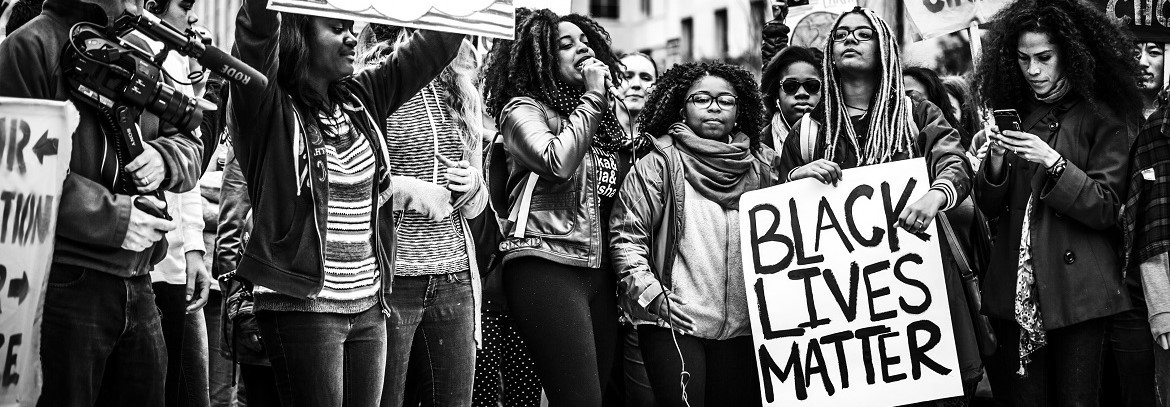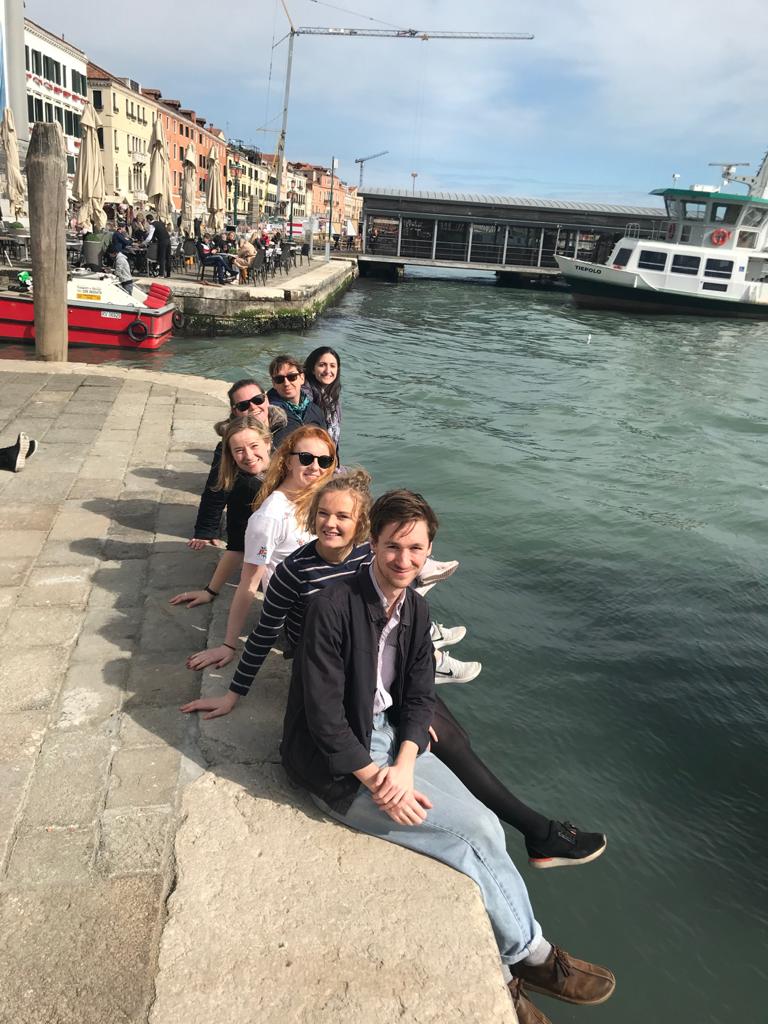Global Sustainable Development News
In interview: Dr Stéphanie Panichelli-Batalla on laughter in oral histories of displacement

Image credit: GovernmentZA/flickr
Dr Stéphanie Panichelli-Batalla, Head of the School for Cross-faculty Studies, was recently interviewed by the Oral History Review about the role of laughter in oral history interviews. You can read the interview here. This interview is directly linked to Stéphanie's paper, "Laughter in Oral Histories of Displacement: 'One Goes on a Mission to Solve Their Problems'", published in the Oral History Review.
Both the interview and paper are based on a wider project started by Stéphanie in 2014, entitled “Life Stories of Cuban internationalist healthcare professionals”. The project aims to fill the gap in the existing literature on Cuban internationalist healthcare professionals, allowing the professionals themselves to "share their stories and help us gain a better understanding of what it meant for them to join these missions, how the work impacted their lives and those of their families, and the challenges they faced as Cuban internationalists."
You might also be interested in the following news items on Stéphanie's recent work:
Our commitment to anti-racism
Image credit: Johnny Silvercloud/flickr
The murder of George Floyd (and so many others) has affected all of us. We understand that some of you in our community have been particularly hurt by this. Racism is a systemic feature of our society, and this is not limited to what has been happening in the United States in the past few weeks and over the years.
Here in the School for Cross-faculty Studies, we are strongly against any type of racist activity and we commit to an anti-racist culture and education.
Congratulations to Dr Marta Guerriero on her promotion to Associate Professor
We are thrilled to announce that Dr Marta Guerriero has been promoted to Associate Professor.
The GSD Department would like to congratulate Marta for this important accomplishment, which reflects Marta's commitment to teaching and learning. We are very proud to have her as a valued member of the School for Cross-faculty Studies.
Press interviews with Dr Stéphanie Panichelli-Batalla on Cuban international healthcare

Image: GovernmentZA/flickr
At the start of this month, Dr Stéphanie Panichelli-Batalla, the Head of the School for Cross-faculty Studies, was interviewed for an article in The Guardian relating to her research on Cuban international healthcare professionals. The article looks into Cuba's 'doctor diplomacy' scheme, and in particular, the emerging trend of Cuban medical teams supporting struggling health services during the Coronavirus pandemic in developed European nations.
In addition, Dr Stéphanie Panichelli-Batalla was also interviewed on Spanish National radio on Wednesday 13 May 2020 for the programme Cinco Continentes (Five Continents). This interview also relates to Dr Stéphanie Panichelli-Batalla's research on Cuban international healthcare professionals and Cuban medical diplomacy, and in particular to the latest interventions of Cuban doctors in Europe. You can listen to the podcast here.
Article published for The Conversation on Cuban internationalism by Dr Stéphanie Panichelli-Batalla
Dr Stéphanie Panichelli-Batalla, the Head of School for Cross-faculty Studies, has had her latest article on Cuban internationalism published by The Conversation UK. The article is titled 'By sending doctors to Italy, Cuba continues its long campaign of medical diplomacy'. You can read the article in full here.
"Cuba stresses its programme to send doctors abroad is based in solidarity. But there are diplomatic and economic reasons too."
You can also read Dr Stéphanie Panichelli-Batalla's recent article published by The Oral History Review on laughter in oral history interviews with Cuban internationalist healthcare professionals here.
Energising development studies research with accelerometer devices: Assoc Prof Giacomo Zanello at the SCFS Seminar Series

Photo credit: Marco J Haenssgen
An inspiring session in the School for Cross-faculty Studies Research and Pedagogy Seminar was delivered last week by Assoc Prof Giacomo Zanello from the University of Reading. Highlighting research using novel FitBit-like accelerometer devices in Ghana, India, and Nepal, Dr Zanello demonstrated how new forms of digital and sensor-based data collection can improve our understanding of people’s energy expenditure profiles during a day and across the seasons.
Global Entrepreneurship Week 2019

Global Entrepreneurship Week (GEW), the world's largest campaign to promote entrepreneurship, took place at the end of last year from 18-24 November. To celebrate this week, Warwick Enterprise hosted and co-hosted a number of student-focused and student-led events on campus.
As Innovation Fellows, students in Global Sustainable Development (GSD) and Liberal Arts were actively involved in running the events on campus, as well as writing content for the Warwick Enterprise website, promoting Warwick Enterprise around the University and attending events themselves.
Upcoming Event: SCFS Work Placement Fair

The School for Cross-faculty Studies (SCFS) Work Placement Fair will be taking place on Tuesday 11 February 2020, 4:00pm-5:30pm, The Oculus, room OC0.01.
Blog post: A Sustainable Serenissima

Senior Teaching Fellow in the Liberal Arts Department Dr Bryan Brazeau looks back on the largely successful Venice and Sustainability project, hosted in Liberal Arts. Find out what staff and students discovered in this innovative problem-based module during their time in Coventry and Venice, and watch a media project looking at cultural sustainability in the city produced by Global Sustainable Development students.
Paper accepted for publication: Laughter in oral histories of displacement
Recently, the Head of School for Cross-faculty Studies Dr Stéphanie Panichelli-Batalla’s paper on laughter in oral histories of displacement was accepted for publication by The Oral History Review. The Oral History Review aims to explore the nature and significance of oral history and advance understanding of the field among scholars, educators, practitioners, and the general public.
Title: Laughter in oral histories of displacement: 'one goes on a mission to solve their problems'
Abstract
Although the use of humor and laughter in oral history has started to appear in oral history literature, it is still very much under-researched. Most of the studies analyze humor and laughter together, while Kate Moore focuses on laughter on its own. Humor and laughter, although linked, are two different concepts. While humor is a mental ability to perceive and/or express something funny, laughter on the other hand is a sound or a sequence of expirations, produced as the expression of an emotion, which can be set off by a humorous trigger, but not necessarily. It is therefore important to distinguish both. This paper will build on Moore’s study by exploring the use of unilateral laughter in eleven oral histories of exiled Cuban internationalist healthcare professionals. However, unlike Moore’s study, this research will not be limited to difficult memories. Our analysis will deepen our knowledge on the history of the Cuban global universal healthcare system by giving a voice to its participants, analyzing therefore, not solely the facts and statistics of the program but, as Portelli states, the meaning that its participants give to it when reflecting on their experience from the present. By exploring the occurrence of laughter, this paper intends to shed light on the relevance of focusing on unconscious reactions in oral history narratives, in order to better understand emotions linked to the narrated memories. The analysis will show that unilateral laughter is recurrent in the interviews when participants reflect on a change in their identity, the implications of working for a state program, and their need for respect of human dignity. It will highlight the impact the mission had on their personal and professional lives during and after their humanitarian experience. These stories of displacement will also show what Norrick has called the dual humorous perspective of the participants, but rather than solely referring to the time of the interview and age of the participants, we will also assert that another key factor to be taken into consideration is the situation of displacement as well as the degree of acculturation of the participants.



